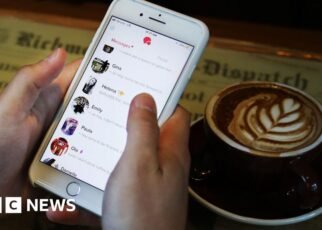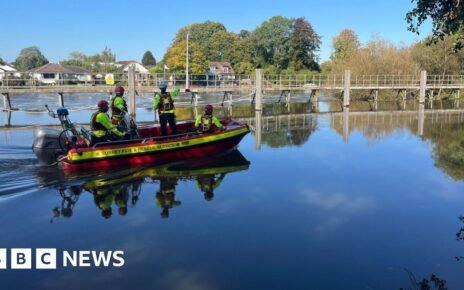[ad_1]
By Maisie Lillywhite, BBC News, West of England
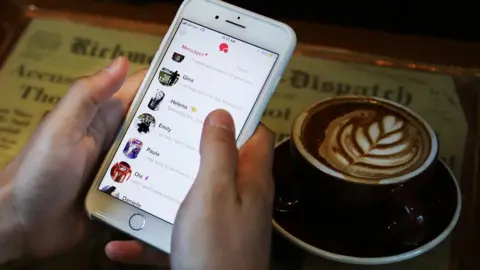 Getty Images
Getty ImagesForget wanting to meet someone with a GSOH for some TLC through the local newspaper. Dating apps in the 2020s have borne a whole new dictionary of acronyms and phrases.
Technology has progressed leaps and bounds since the turn of the millennium, redefining how young people communicate with friends and, more recently, how we date.
Whereas old acronyms include the likes of GSOH (Good Sense Of Humour) and WLTM (Would Like To Meet), newly popular configurations of capital letters include ENM (Ethical Non-Monogamy), ONS (One Night Stand), and NSA (No Strings Attached).
According to Ofcom statistics published in January, more than one in 10 UK adults use online dating services; 2.49m adults use the top app, Tinder, alone.
And the rise of swiping, prompts and ghosting has brought with it a new “language”, with many young single people across the world explaining what they’re after in jumbles of capitalised letters.
Consequently, acronyms have become indecipherable to some, with one dating expert claiming singletons are in fact “shortening their reach”.
‘Off-putting’
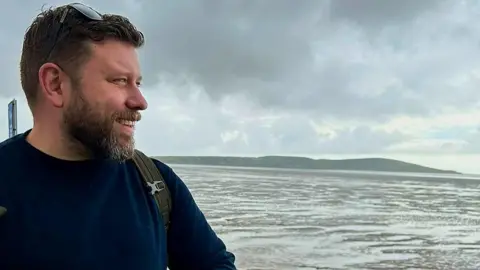 Matt Knibb
Matt KnibbMatt turned to online dating after coming out of a 16-year relationship three years ago, but has also tried in-person dating events.
Although he thinks it is “easier” to strike up conversation with people online, he says the connection is “so much weaker” and acronyms can be “off-putting”.
“I find the use of acronyms like FWB (Friends With Benefits) and ONS really difficult,” the PE teacher said.
“I’m not looking for that, but seeing that makes me slightly concerned as I take a princess kissing frogs approach.
“The joy of dating now is you get to date lots of different types of people and it allows me to refine what it is I’m actually looking for.
“This person is just up for ‘Yes, let’s commit immediately, or let’s not do it at all’.”
But online dating in the 2020s has opened Matt’s mind to other ways of describing himself.
After someone explained to him the breakdown of his past relationship might partly be down to conflicting star signs, the 44-year-old from Bath has started using astrology to guide his decisions on swiping right.
“It’s not my sole deciding factor, but if I see somebody who lists her star sign as being one of the top four compatible with mine, I’m more likely to pursue a conversation with that person,” said Matt, who is also a mental health coach.
‘Isolates people’
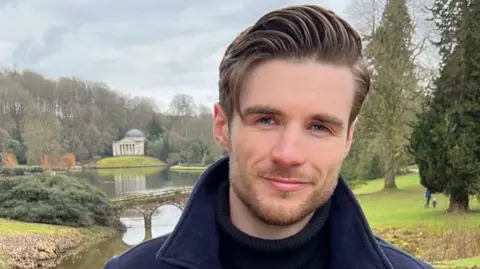 Jacob Lucas
Jacob LucasJacob Lucas, a dating coach from Westbury in Wiltshire, said acronyms can complicate and “take away the authenticity” from the “competitive” 21st Century dating experience.
“What [the use of acronyms] does is it isolates people who don’t know what they mean,” he told the BBC.
Jacob said someone that ticks all the boxes may be looking for something “NSA”, but doesn’t know what the acronym stands for and decide they are “not going to bother” with a potential match.
As a result, it can lead to daters unintentionally “shortening their reach”, so Lucas recommends communicating your desires in plain English.
But, Jacob said, acronyms can act as a “green light” to other potential dates, especially those who are interested certain types of sexual encounters and kink communities.
Common acronyms used to communicate sexual wants on dating apps include ONS and GGG (Good, Giving and Game).
The latter means someone believes they are good in bed, give equally to their partner and are game to try new things in the bedroom.
“It’s filtering out people who don’t understand that lingo,” Jacob said.
“People who get really involved in that realm of the dating world know what those acronyms mean.
“It’s kind of like a signal, you can hit a target niche more.”
‘No idea’
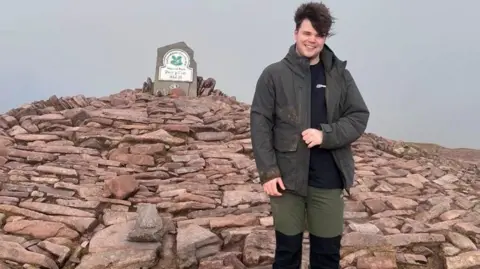 Jordan Digby
Jordan DigbyJordan has been online dating “on and off” since he turned 18.
Now 24, the mechanical engineer from Gloucester said he does not take it “super seriously”, usually describing himself using a funny one-liner.
“In terms of bios, people either don’t share a whole lot or they share too much,” Jordan said, admitting he has “absolutely no idea” what most acronyms mean.
“An ex told me what DDLG means, which I thought was strange, to put it lightly.”
Despite his confusion regarding some acronyms like DDLG (Daddy Dom Little Girl), Jordan would not let it stop him from getting to know someone.
“If I liked the look of someone, I’d just Google it or swipe right and ask later,” he said.
One concern about acronyms is the way they may “isolate” older people, who were not raised online.
Although older generations might have written a lonely hearts advertisement several decades ago, they may have no idea what modern acronyms found on the likes of Tinder, Bumble and Hinge may translate to.
“I can’t imagine how confusing it would be seeing all of these, it’s like a language you subconsciously learn,” Jordan said.
“For younger people, I feel like you would learn a lot of them through social media.”
‘Additional learning’
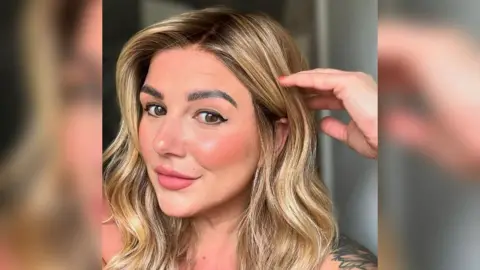 Jo Tucker
Jo TuckerJo Tucker returned to the dating world a few years ago after splitting from her husband, even dabbling in on-screen dating by appearing on Channel 4’s First Dates.
The 44-year-old from Paulton in Somerset said she struggled with the “2D-ness” of online dating, having encountered several profiles with AI-generated images.
In terms of acronyms, Jo finds them “mind-boggling”.
“GSOH I know, and I’ve learnt that ENM means ethical non-monogamy,” she said.
“I’ve absolutely matched with people before without reading the small print of them being in an open relationship, and then I’ve had to back out of meeting them.
“I think acronyms are additional learning on top of the learning curve of dating app etiquette.”
To Jo, meeting someone in person is the ideal situation.
The mum-of-three has alopecia and previously opened up to the BBC about how her condition has made her feel “evicted” from the dating scene.
“Dating is like the Wild West these days,” she said. “I would just like to meet someone relatively normal in a pub.
“Then you see them from the offset and take it all in, and can see if their shoes are rubbish.”
[ad_2]
Source link
